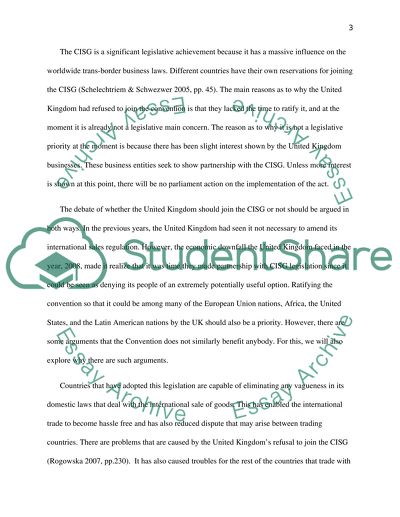Cite this document
(“UNCITRAL Convention on Contracts for the International Sale of Goods Essay”, n.d.)
UNCITRAL Convention on Contracts for the International Sale of Goods Essay. Retrieved from https://studentshare.org/law/1460886-uncitral-convention-on-contracts-for-the
UNCITRAL Convention on Contracts for the International Sale of Goods Essay. Retrieved from https://studentshare.org/law/1460886-uncitral-convention-on-contracts-for-the
(UNCITRAL Convention on Contracts for the International Sale of Goods Essay)
UNCITRAL Convention on Contracts for the International Sale of Goods Essay. https://studentshare.org/law/1460886-uncitral-convention-on-contracts-for-the.
UNCITRAL Convention on Contracts for the International Sale of Goods Essay. https://studentshare.org/law/1460886-uncitral-convention-on-contracts-for-the.
“UNCITRAL Convention on Contracts for the International Sale of Goods Essay”, n.d. https://studentshare.org/law/1460886-uncitral-convention-on-contracts-for-the.


